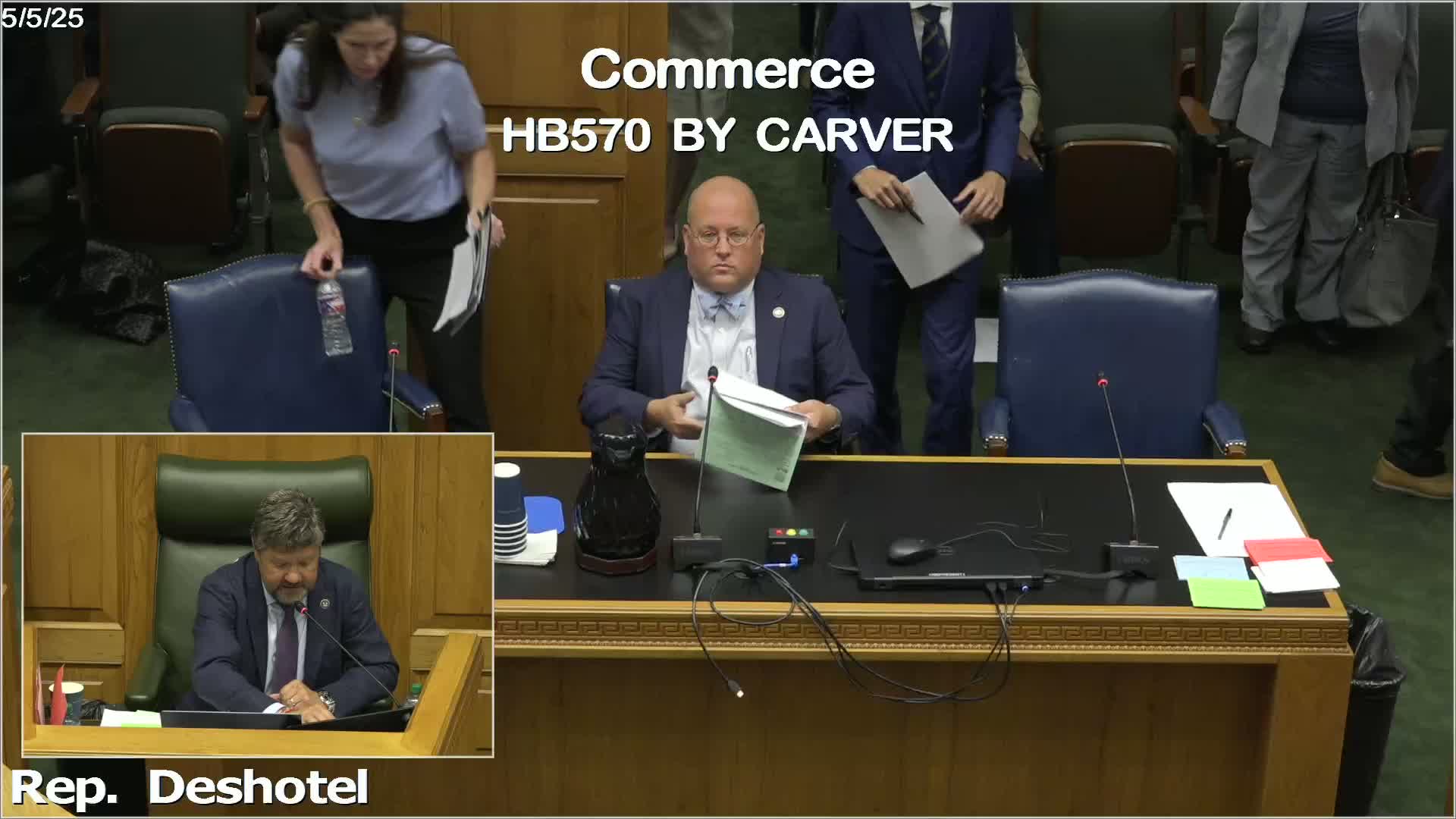Committee backs app-store age-verification requirement for minors with amendments and implementation delay
Get AI-powered insights, summaries, and transcripts
Subscribe
Summary
The House Committee on Commerce approved House Bill 570 with negotiated amendments requiring app stores to verify age and obtain parental consent before minors download apps; the bill includes implementation lead time, an enforcement role for the attorney general and a provision preserving developer-level obligations.
Lawmakers on Monday moved House Bill 570 forward with amendments after hours of testimony from parents, students, technology experts and industry groups about age verification, parental control tools and constitutional concerns.
Representative Jack Carver, the bill’s sponsor, told the committee HB 570 "requires app stores to age verify and obtain parents' permission anytime a teen wants to download an app," arguing the two dominant app stores provide a single effective level to perform verification. "The ability for these companies to do it already exists," Carver said, citing Apple’s Family Sharing and Google’s parental controls.
The committee adopted a negotiated amendment package (amendment set 2,164), which added definitions, clarified that developers who already are required by law to age-verify remain responsible for application-level verification, and set an effective date of July 1, 2026. Representative Denise Davis worked with the sponsor to add language ensuring developers must also "ensure compliance with applicable laws and regulations."
Witnesses were split. Advocates and students urged the committee to move the bill, describing risks for minors including bullying, sexual predation and mental-health harms. Arun Kakkar, a high-school senior who testified with the Louisiana Legislative Youth Advisory Council, said, "Without age verification, how can we know that the apps are curated for minors?" Other student witnesses and community groups described incidents of online grooming and the harms that can follow.
Industry and civil-liberties groups warned of privacy and constitutional problems. The Chamber of Progress and trade groups such as NetChoice said broad, store-level identity verification could require users to supply government IDs or credit-card data; they argued that would erode privacy and could run afoul of First Amendment protections around access to information. NetChoice noted legal challenges to related state laws in other jurisdictions and urged caution.
Carver and committee members addressed numerous edge cases raised in testimony — for emancipated minors, children in foster care, grandparents or guardians acting as supervisors, and children who purchase phones themselves. Committee members and witnesses said the bill’s delayed effective date and the adopted amendments were intended to provide time for implementation guidance and to reduce unintended harms.
Enforcement and penalties: The measure assigns enforcement to the attorney general’s consumer-protection authority, includes a cure period for violations, and proposes civil penalties that would be deposited to support consumer-protection activities. The committee adopted the amendment set and subsequently voted to report HB 570 favorably with amendments.
Why it matters: The bill would change how minor accounts are created and managed in app ecosystems and would shift some compliance obligations to app-store operators while retaining developer responsibilities in certain circumstances. It touches parental rights, privacy, free-speech and platform responsibility.
Next steps: The committee adopted amendment set 2,164 and voted to report HB 570 favorably with the negotiated amendments; the bill moves from committee to the next stage of the House process.
